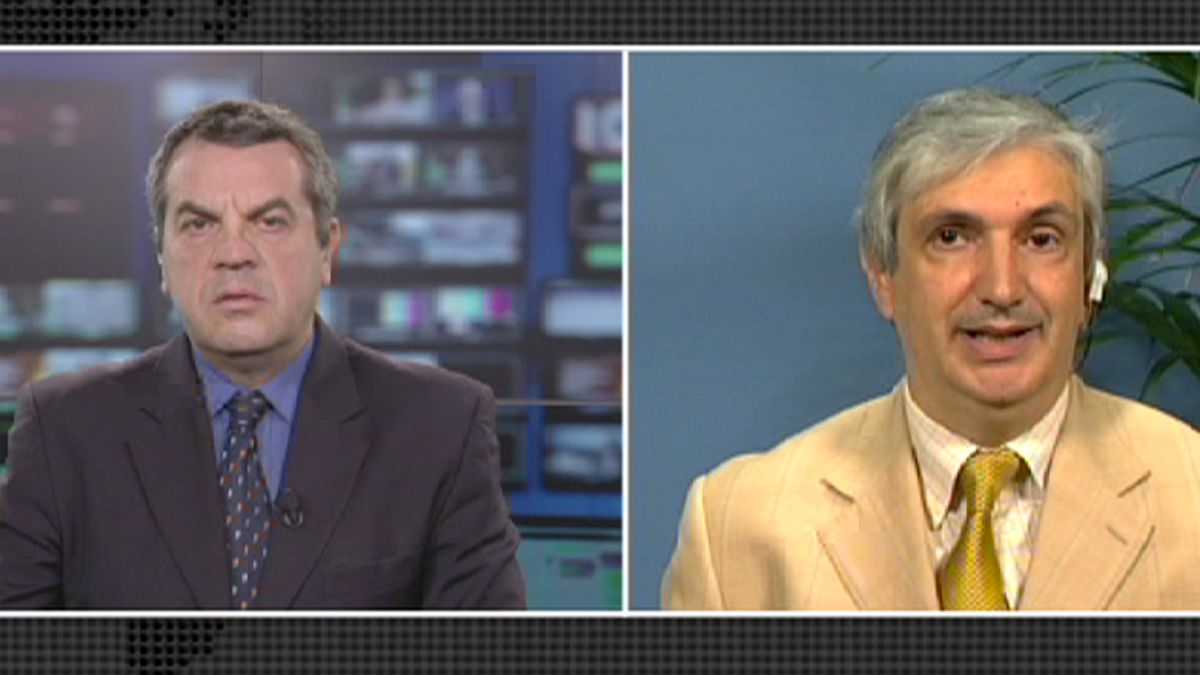The political crisis provoked by former prime minister Silvio Berlusconi’s People of Freedom Party ministers resigning their cabinet posts on his orders risks throwing Italy back into financial chaos.
After five months of fragile stability, the situation has the potential to implode, dragging the country, and possibly the entire eurozone, into a devastating crisis.
The prolonged wrangling between the government’s coalition partners came to a head when Berlusconi tried to force new elections with the resignations.
Berlusconi, 77, is angry because he is facing eviction from parliament after a tax fraud conviction.
As a result shares prices fell while the amount of interest Rome has to offer to get investors to buy its government bonds rose.
That widened the so-called spread on bonds, the difference between the interest on Italian 10 year bonds and their German equivalents.
But even before this the uneasy marriage between centre-left and centre-right that followed February inconclusive election has been blocking efforts to reform the country’s finances.
They are seen as vital to pull the eurozone’s third largest economy out of recession as well as bring the budget deficit under European Union limits.
The uncertainty prompted warnings that Italy’s sovereign debt rating is at risk which would mean it having to pay more to borrow money.
The ratings agency Fitch said the crisis could trigger a cut in Italy’s BBB+ rating if it slowed efforts to rein in the budget deficit.
Euronews spoke to financial analyst Maurizio Mazziero and asked if Italy is yet again at the edge of the abyss?
Maurizio Mazziero “It’s possible. Though the sectors which would actually see the greater downsides are the financial and banking sectors.
“I must point out, however, that although right now we’re seeing some figures pointing to a feeble economic recovery – and with OECD forecasts also confirming that – at the end of the day, the main issue is always the same: public debt.
“According to our estimates, the August reading will probably point to a slight recovery and a fall in the debt of 10 billion euros. However by the end of the year we will once again see Italy’s debt reach an all-time high.”
euronews: “Even as we speak there are rumours that a rating agency is about to downgrade Italy because of the lack of political reforms. Are financial speculators ready to target Italy yet again?”
Mazziero: “Actually, investors are carefully evaluating the situation and, all-in-all, the situation on the stock markets on Monday was not that dramatic. Even the increase of the spread on government bonds, which is an indicator of risk of default on those bonds, has not been huge.
“Ironically, this political crisis could actually have a positive influence on the budget deficit parametres. The deficit to GDP ratio is currently forecast to go above 3.0 percent: around 3.1 percent according to the government and around 3.2 percent according to the IMF.
“But this parameter could, instead, reduce to 3.0 percent or 2.9 percent. That’s if the planned rise in VAT – which seems to be confirmed and is due to start on Tuesday – and the reinstatement of the second tranche of the goverment’s tax on properties results in the state getting bigger revenues.”
euronews” “On Wednesday Prime Minister Enrico Letta will ask for a vote of confidence in parliament. What are markets and investors betting on?”
Mazziero: “If the majority in Parliament is actually able to put together a new – albeit shaky – government which manages to make a few reforms and, at the very least, introduces the 2014 budget draft law – then the markets could calm down. If, instead of that, the country faces new elections, then that’s a huge question mark and markets could really see Italy negatively leading to a significant increase in the spread, but, most of all, they would focus negatively on new public debt auctions.”
euronews: “On the Milan stock market, shares associated with Berlusconi’s Mediaset fell in value. Plus, political turmoil inside his party could lead to a split, with a new group emerging that would back the government. So, in the end, who pays the price for this, is it just Berlusconi?”
Mazziero: “Actually I think that, in this situation, it’s the Italian people who are paying. We have two very big problems, a huge public debt and an economy that isn’t growing. They’re both structural issues from an economic point of view. So the ones who will pay the bill in the end will be all Italians, every single one of them.”
